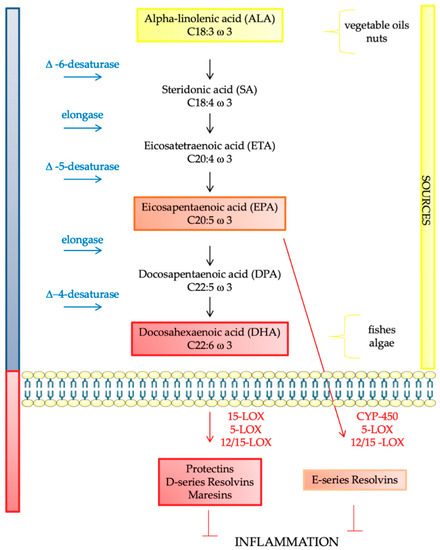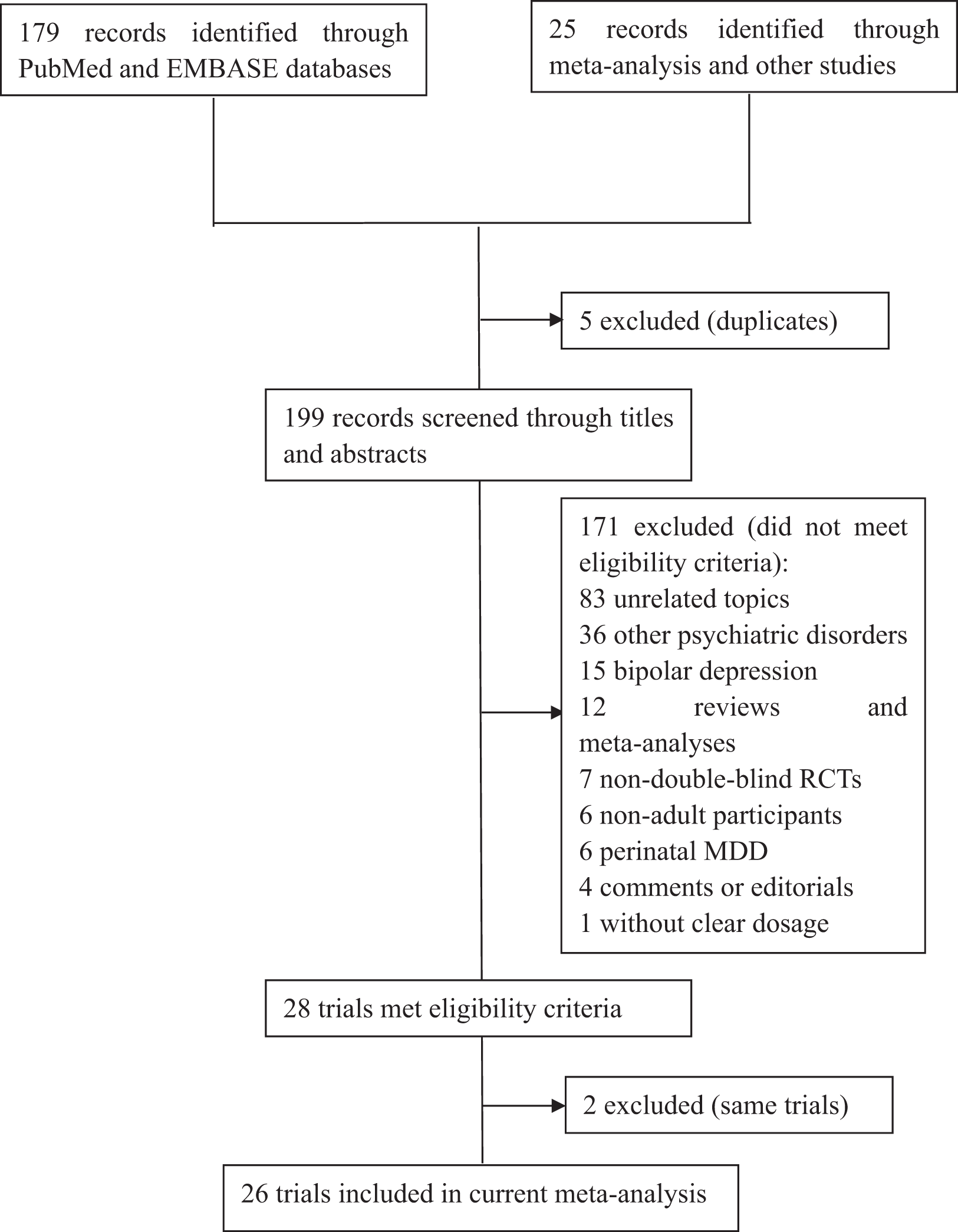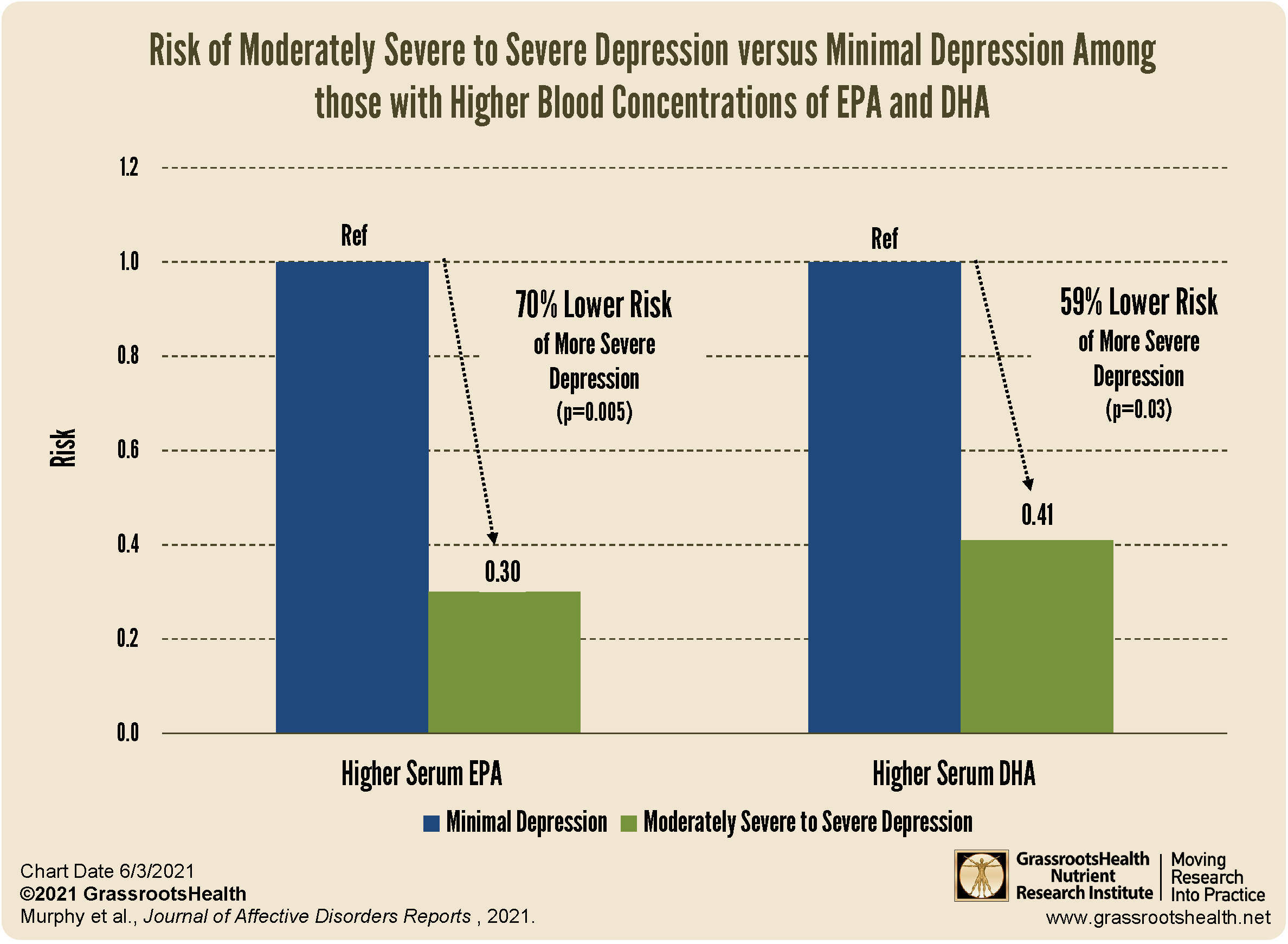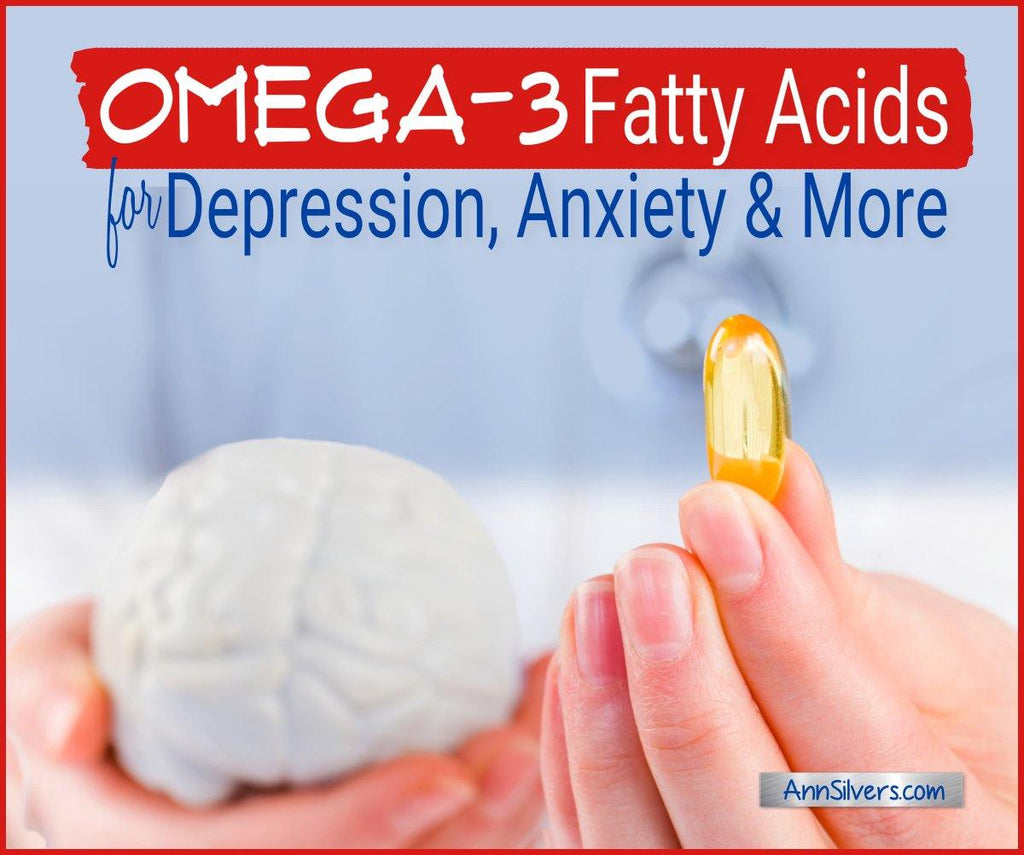
Omega-3 fatty acids and the treatment of depression: a review of scientific evidence - ScienceDirect

Exploring the therapeutic potential of omega-3 fatty acids in depression | Environmental Science and Pollution Research
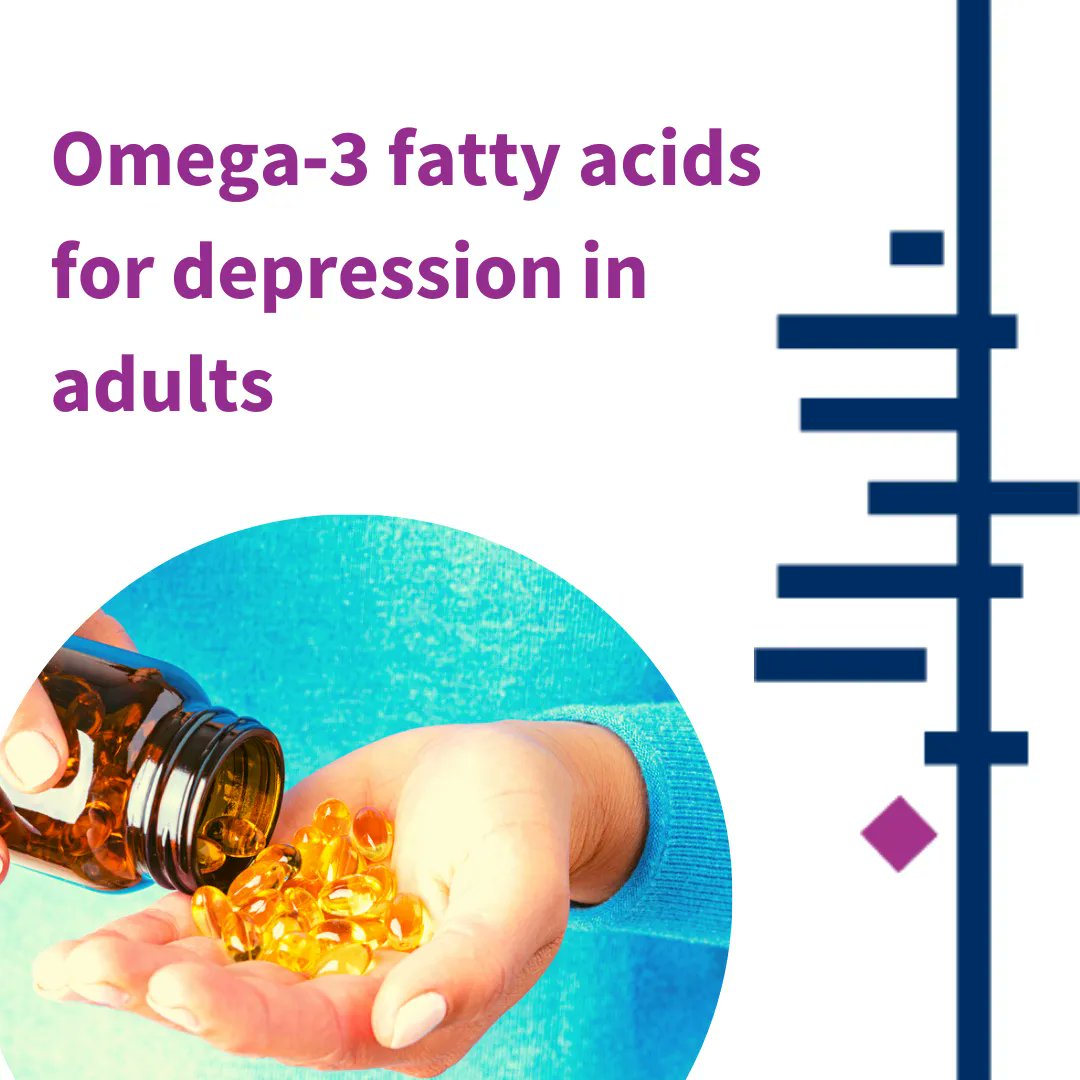
Cochrane on X: "#Omega3 fatty acids for #depression in adults - updated by @Cochrane_CCMD 🎧 Cochrane Podcast https://t.co/9XxvNpenFi 📃 Systematic review https://t.co/Qgwyuqruj4 💬 Author commentary https://t.co/4q8Y6wjKdD https://t.co/I8iD5GM8uG" / X

Role of Omega-3 Fatty Acids in Brain and Neurological Health with Special Reference to Clinical Depression - ScienceDirect

Biological Mechanism of Antidepressant Effect of Omega–3 Fatty Acids: How Does Fish Oil Act as a 'Mind-Body Interface'? | Semantic Scholar

Updated review: Insufficient evidence for use of Omega-3 supplements in treating depression | Cochrane

Omega-3 polyunsaturated fatty acid supplementation and white matter changes in major depression - ScienceDirect

New insight into how anti-inflammatory effects of omega-3 fatty acids could help reduce depression - King's College London

Updated review: Insufficient evidence for use of Omega-3 supplements in treating depression | Cochrane

Omega-3 fatty acids and the treatment of depression: a review of scientific evidence - ScienceDirect

Role of Omega-3 Fatty Acids in Brain and Neurological Health with Special Reference to Clinical Depression - ScienceDirect

Figure 2 from Neurobehavioral aspects of omega-3 fatty acids: possible mechanisms and therapeutic value in major depression. | Semantic Scholar
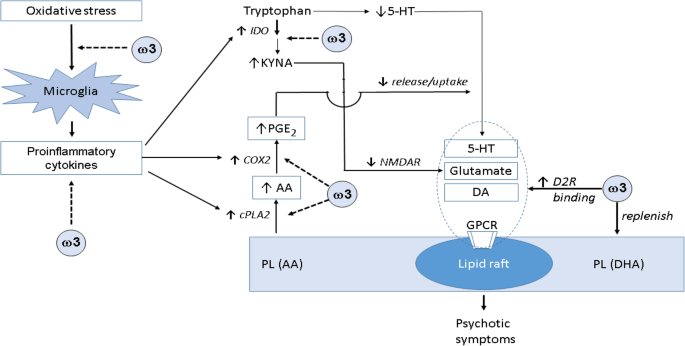
Beneficial effects of omega-3 fatty acid supplementation in schizophrenia: possible mechanisms | Lipids in Health and Disease | Full Text
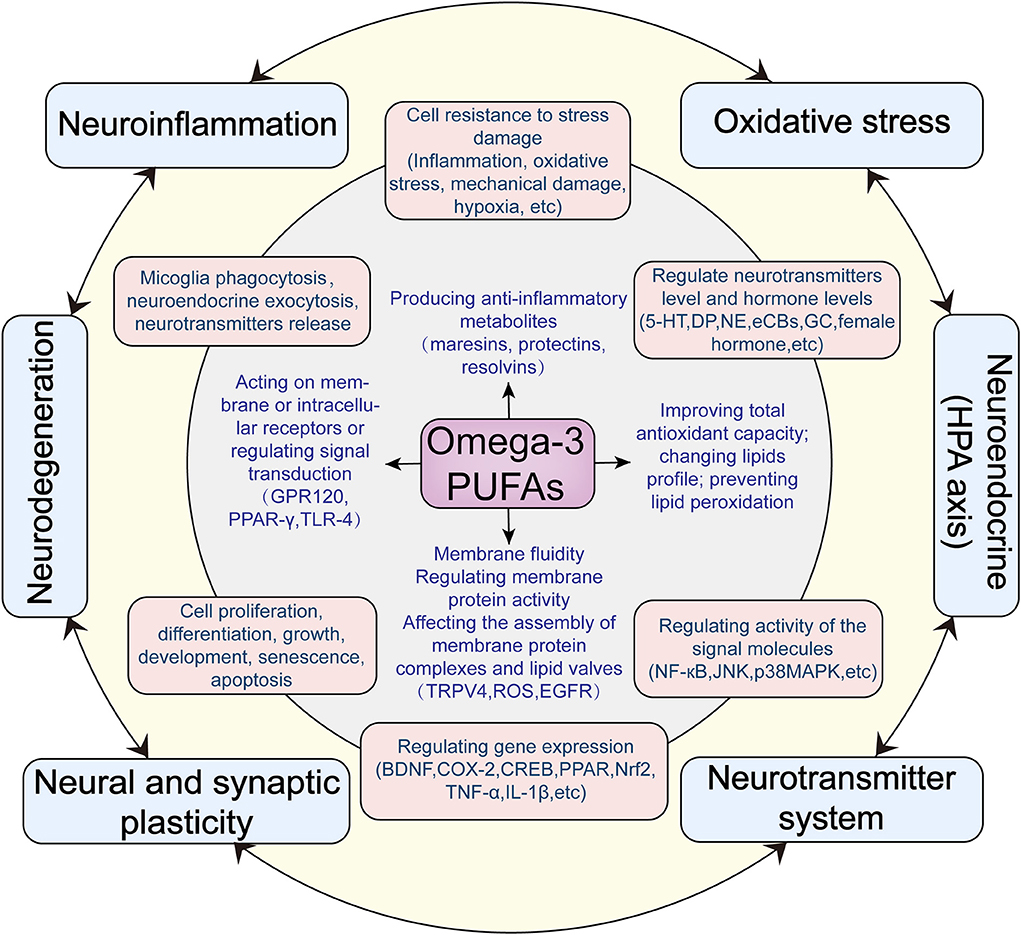
Frontiers | Possible antidepressant mechanisms of omega-3 polyunsaturated fatty acids acting on the central nervous system

Daily omega-3 fatty acid intake and depression in Japanese patients with newly diagnosed lung cancer | British Journal of Cancer
